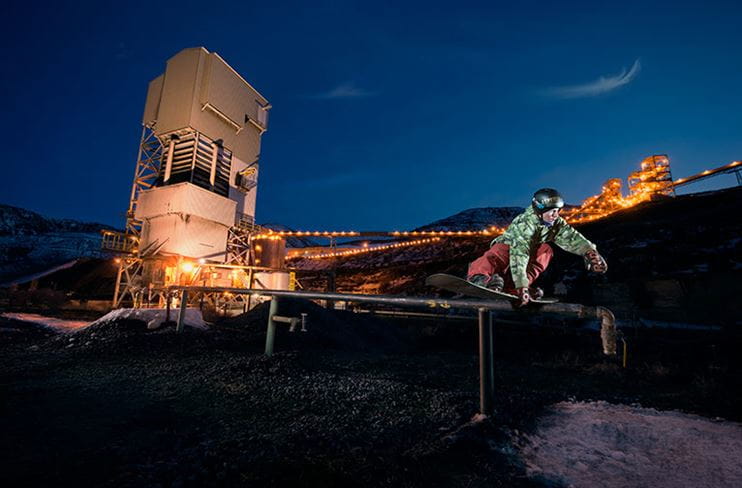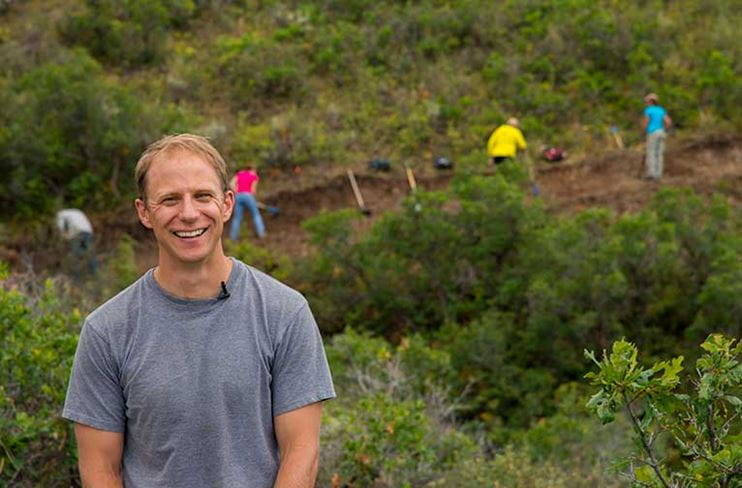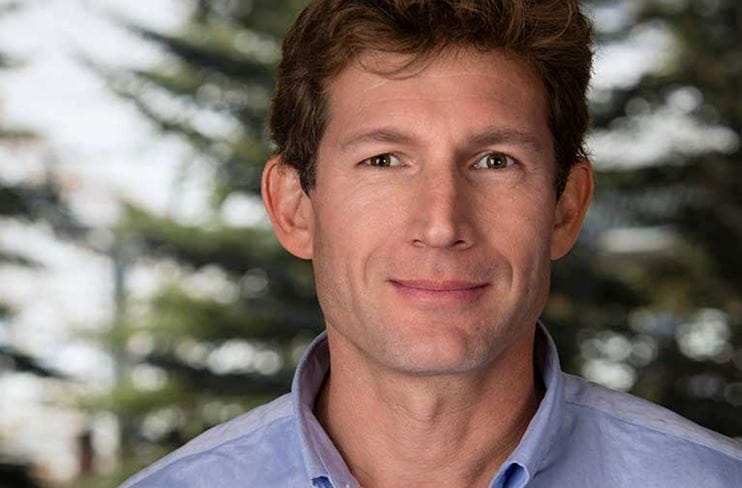
How to Find a Green Job
Some advice from our Senior Vice President of Sustainability on landing your dream job in sustainability.
How can I find a green job?
This is the time-honored question that we get asked frequently. It is both heartbreaking and encouraging how many skilled and interested people are looking for work in the sustainability field. The good news is the sector is growing exponentially.
Many professionals will explain that they got to their position in sustainability through a combination of speed, skill, strength, stamina, and intelligence. That’s typically not the case. Usually, it’s what I’d call “assisted luck.” That's certainly true for me. I’m less smart, strong and fast than other candidates (and much less skilled). But I happened to be in the right place at the right time. The only thing I did was remain opportunistic, and stick with opportunities that seemed promising until they played out. That said, there are a few steps we can all follow to improve the odds. Luck is good, but as the mountaineers say, you make your own luck ... to a point.
The six keys to one day finding a job in the business of sustainability are:
1. Be Ruthlessly Opportunistic
Being ruthlessly opportunistic means taking low-paid jobs, internships and volunteer positions in the field in which you want to gain experience.
2. Make Your Job A Green Job
Don't take your eye off the ball even if you end up working in unrelated fields for a while to make ends meet. In fact, you might try to make your job in that unrelated field morph into the job you want.
Several environmental directors I know have simply proposed their position within a company — and usually the company had been previously uninterested in such work. In the end, every job is going to have to become a job that focuses on climate change if we hope to solve this problem.

3. Work The Hell Out Of Your Network
Constantly network with people and keep their contact info — few people ever get a good job by responding to a want ad. And don't worry about pissing someone off by contacting them too much: you are just reminding them you are around, and people can't keep track of everyone.
Try virtual networking as well. Here are six social media and online resources to check out, provided by Matt Hamilton, our previous Director of Corporate Sustainability, who used them to find his own green job: Sustainability Director at VF Corporation.
1) Ellen Weinreb: her website is full of resources for sustainability jobs and skills-building opportunities.
2) Ellen Weinreb's Twitter is another excellent resource.
3) Sign up for Sustainability Leads' newsletter for monthly updates on opportunities and openings.
4) While you're at it, sign up for Reconsidered's newsletter here too.
5) Check out Ed's Job List and sign up for list updates here.
7) Sign up for the Philanthropy Career Network newsletter.
6) Katie Kross of Duke University has a lot of valuable information on Green jobs; check out her Twitter for resources.
4. Don't Ever Get Discouraged
5. Get Your Foot In The Door

6. Educate Yourself Constantly No Matter What You're Doing
You should read every book on sustainable business you can get your hands on, so that when a good opportunity arises you can talk the talk, and know what people are talking about. Anyone who wants a job in this field must have read (and be able to discuss) Paul Hawken’s The Ecology of Commerce, Nathaniel Rich’s Losing Earth, Michael Mann’s The New Climate Wars, Tom Friedman's Hot, Flat and Crowded, Joe Romm’s Hell and High Water an The Hype About Hydrogen, Anything at All by Bill McKibben, including Eaarth and Falter, Electrify by Saul Griffith, Naomi Oreskes and Eric Conway’s Merchants of Doubt and The Big Myth, and Storms of My Grandchildren by James Hansen, plus probably a dozen other related books you’ll find by association. (Shameless self-promotional plug: you should also read my book, written for people like you, called Getting Green Done, about the difficult of implementing sustainable practices, and my new memoir and practicum about the failure of the environmental movement and how to move forward. It’s called Terrible Beauty: Reckoning with Climate Complicity and Rediscovering Our Soul. You have to understand climate science, green building design and energy efficiency.
It also doesn’t hurt to make sure you’ve read the background stuff: John Muir, Henry David Thoreau, Aldo Leopold, Rachel Carson, and philosophy, particularly ethics including work by Peter Singer (The Life You Can Save), Mountains Beyond Mountains by Tracy Kidder, as well as any work that answers the question: “how ought we to live?” Online, you should subscribe to Bill McKibben’s blog The Crucial Years, David Roberts’ Volts and Emily Atkin’s blog Heated.
In fact, you should listen to people like Sean Hannity as much as you can stand it, and read stuff that pisses you off and which you disagree with so you understand the opposition strategy. Peter Schwartz from the Global Business Network once said you should read everything: bride magazines, technical manuals, etc. Even if you just skim that stuff, you will have a sense of what's happening in a range of fields. I force myself to read, say, Redbook, at the dentist's office. I hate it, but it gives me insight into other people's lives and ideas. Plus, you can do this because you have time—after all, you’re looking for work.
Conclusion
It's a bewildering thing, trying to get into this (or any) field, and a lot of it is just random chance. Ask anyone with a dream job, and they’ll tell you that at one time, they were flipping burgers wondering what the hell they were doing with their life. It was certainly true for me. And I bet it will be true again.
And good luck!
About The Author

Auden Schendler
Auden is SVP Sustainability at Aspen Skiing Company, where he focuses on big-scale solutions to climate change, primarily clean energy and activism.He has been a trailer insulator, burger flipper, ambulance medic, Outward Bound instructor, high school math and English teacher, and Forest Service goose-nest island builder. He has lectured at Harvard, Yale, Google and Starbucks, and to second graders and Chilean kayakers. He lives in Basalt with his family.



